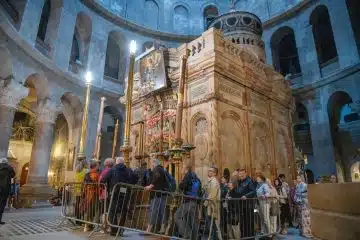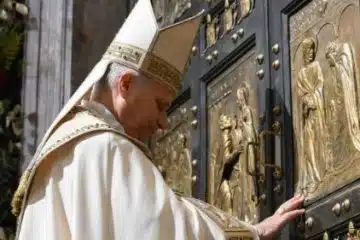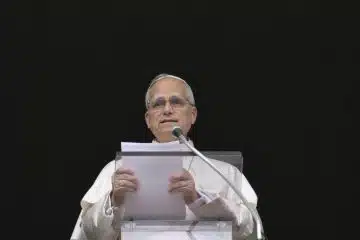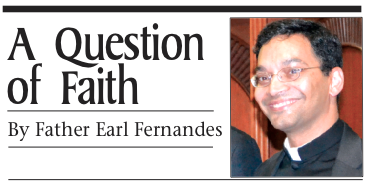Q&A: Judgment at life’s end is not something to fear
Dear Father: I have been staring at a poster of the Last Judgment from the Sistine Chapel. I began to think about the judgment on my soul, but then I got a little confused. Will I be judged immediately when I die or only at the end of time?
Dear Reader: The Last Judgment scene is a powerful one. The Apostles’ Creed speaks of Christ coming to “judge the living and the dead.” This speaks to the universal or general judgment at the end of time – the final encounter with Christ in His second coming. Following in the footsteps of the prophets and as the fulfillment of their message, Christ announced the judgment on the Last Day (cf. Matthew 3:7-12). As Lord of Eternal Life, He has acquired the right to pass definitive judgment on our words and works – what we have done for the least of our brothers and sisters and to Christ Himself (cf. Matthew 25:40) – through His victory on the cross (cf. CCC, 678-679).
The general or universal judgment is not a new “trial,” but is a declaration of the sentence or reward already given at the particular judgment of the soul. Jesus suggested as much in saying that “the conduct of each one and the secrets of the heart would be brought to light.” However, we ought to be mindful that Son of Man did not come principally to judge and condemn but to redeem, save, and give life.
The universal judgment is connected intimately with belief in the resurrection of the flesh – of the just and the unjust – on the last day. Those who were good and just will rise to the resurrection of life and their bodies will rise to share the glory of their souls. Those who were unjust, did evil, and utterly rejected God and the invitation to life, will rise to the resurrection of judgment (John 5:28-29) and eternal punishment. The Last Judgment can be terrifying to some; however, it can also bring consolation inasmuch as it reveals that God’s justice triumphs over injustice and that God’s love is stronger than even death itself. Furthermore, it serves as a call to conversion to love God and neighbor and to seek the justice promised by the Kingdom.
The universal judgment is a declaration of the judgment rendered at the time of the particular judgment, that is, on the judgment passed on a person immediately after death. We have an “acceptable time” during which we can accept or reject the divine grace offered to us by God in Christ, but eventually we must die. This particular judgment can be seen in clear examples from the scriptures. Jesus tells the story of the Rich Man and Lazarus. Both die.
The rich man never helped Lazarus and treated him with contempt and he suffered torments. Lazarus, the poor man, though he suffered in this world was taken to the bosom of Abraham. Another example is from the cross in Jesus’ dialogue with the “good thief” who asks for mercy – to be remembered by Jesus when He comes into His kingdom. Jesus promises Him: “This day you will be with me in paradise.” The other thief was unrepentant and received his “reward”.
Each one of us will be judged immediately after death in accordance with his or her works and faith (CCC, 1021). The particular judgment refers an individual’s life to Christ – entrance into the blessedness of heaven either immediately or through purification (purgatory) or damnation (hell). It is useful to think of one’s relationship with Christ, particularly when we examine our individual conscience. We are invited to be responsible for our actions and attentive to our relationships with God, the church, and our neighbor. Do we want to live and die as a “friend of God”? Heaven is God’s home, where the saints – his friends – share in God’s life and love fully.
Some people are terrified of both the particular and universal judgment. We are consoled by the words of John of Avila: “Nothing can so terrify us as much as Jesus Christ can reassure us. Let my sins surround me. Let my fears of the future accuse me. Let the demons lay their snares for me. As long as I beg mercy of Jesus Christ, who is all kindness, who has loved me even until death, I cannot lose confidence; for I see myself so highly prized that a God gave Himself for me.”
Father Earl Fernandes is dean of Mount St. Mary’s Seminary and the Athenaeum of Ohio, where he is assistant professor of moral theology. To ask Fr. Earl a question about the Catholic faith, send an email to [email protected] or to The Catholic Telegraph, 100 E. Eighth St., Cincinnati, OH 45202
This “A Question of Faith” column by Father Earl Fernandes originally appeared in the September 2014 print edition of The Catholic Telegraph.














